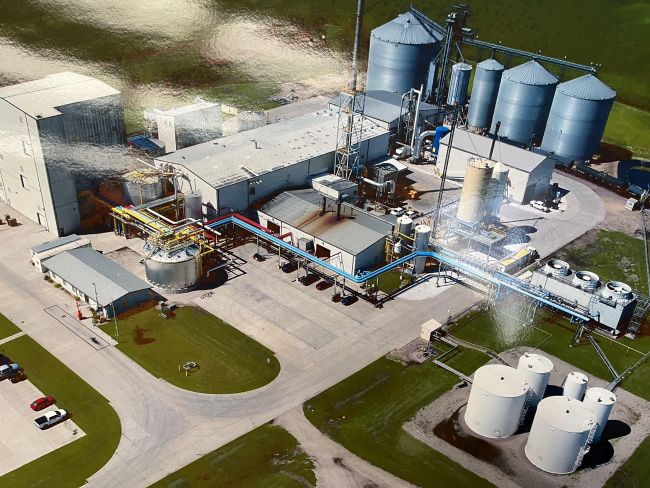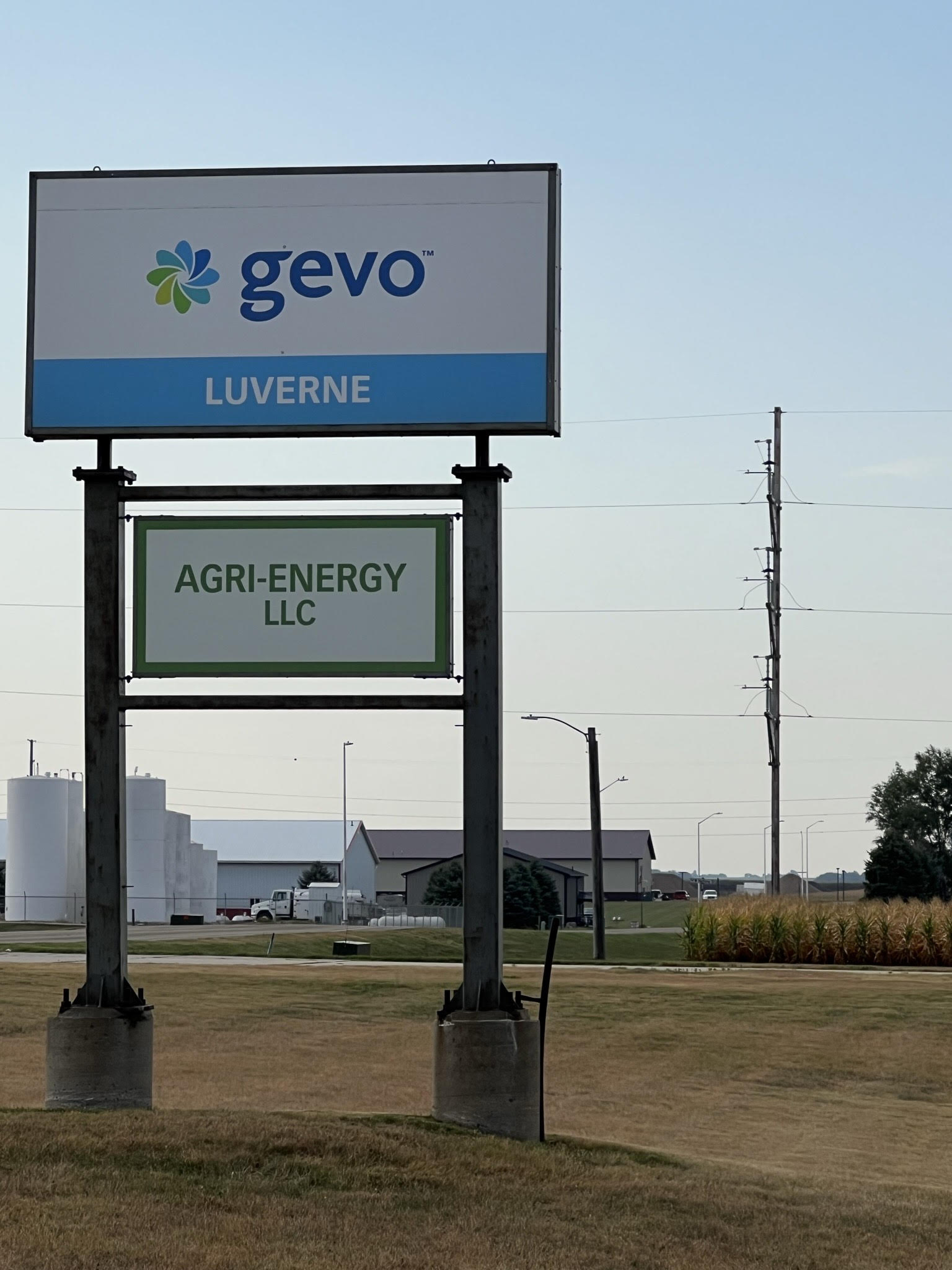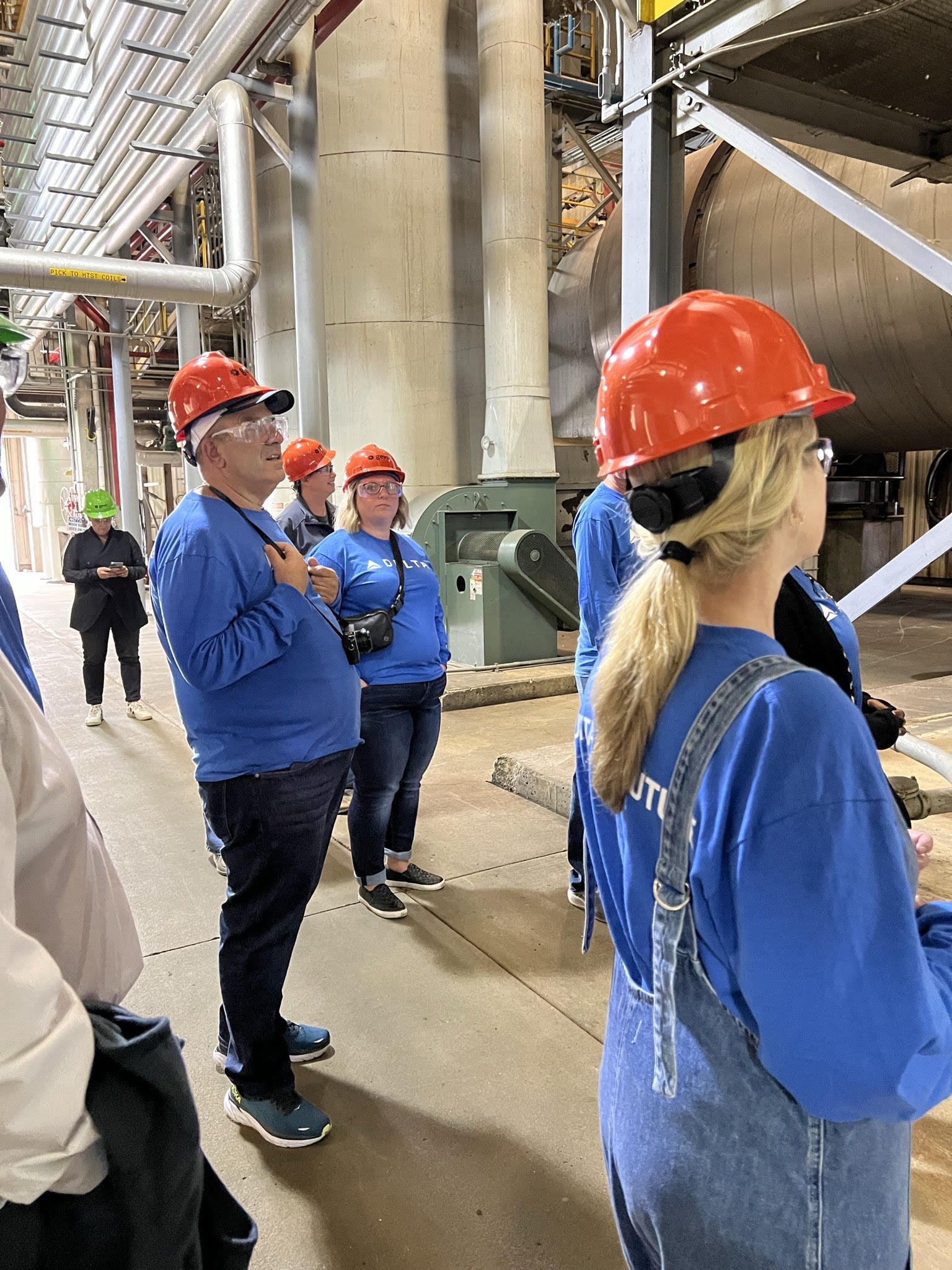1st November 2023
Written on 25th October 2023
Pioneering Sustainable Aviation Fuel Production for Delta: A Glimpse Into Gevo's SAF Plant
The future of the planet is in our hands. That's why taking steps toward a more sustainable future is critical, especially in the world of travel. The groundbreaking development of sustainable aviation fuel (SAF) has created a responsible manner for travelers to be proud of the ways in which they explore the world.
With the help of Delta, TAG's incredible airline partner, our Director of Commercial US Justine Liddelow had the incredible opportunity to visit Gevo's SAF plant and delve into the fascinating world of sustainable aviation fuel production. Gevo, a leading renewable chemicals and advanced biofuels company, has been at the forefront of developing innovative solutions to reduce carbon emissions in the aviation industry—making Delta's choice to use them as their SAF partner an easy one.
To celebrate World Sustainability Day, this article aims to provide an overview of Justine's visit and highlight the key insights she gained regarding Gevo's SAF production process, its complexity and the significant role it plays in the travel industry.
Before diving into the visit, it is essential to grasp the significance of sustainable aviation fuel. As an alternative to conventional jet fuel, SAF significantly reduces greenhouse gas emissions. Produced from renewable feedstocks, including corn, sugarcane and agricultural waste, SAF is positioned as a more environmentally-friendly option for the aviation sector. During Gevo's SAF plant tour, the team focused on their SAF production process through the use of corn and even showcased Feikema Farms, where the corn is grown before it is provided to Gevo to produce the sustainable aviation fuel.
Upon stepping into the plant, the scale and complexity of Gevo's operation would take any guest by surprise. Through in-depth safety measures, Gevo made it abundantly clear that they prioritize the protection of all visitors and workers alike. The facility was a testament to Gevo's commitment to safety and their dedication to driving sustainable change in the aviation industry. On top of it all, the plant showcases a seamless integration of cutting-edge technology, advanced engineering and environmental consciousness.
To simplify the intricate process of Gevo's SAF production, Justine broke it down into just three steps:
- Gevo's SAF production begins with the conversion of renewable feedstocks (corn) into isobutanol, a versatile chemical building block. This conversion process, known as fermentation, utilizes genetically modified yeast to ferment sugars derived from feedstocks—not so dissimilar from brewing your own beer or the making of wine. Through the fermentation in Gevo's process, the result is a high-purity isobutanol, a critical intermediate in SAF production.
- The next step involves the conversion of isobutanol into hydrocarbons. This process, called hydrocarbon conversion, employs a proprietary technology known as Gevo's Alcohol-to-Jet (ATJ) process. The ATJ process transforms isobutanol into a range of hydrocarbons that closely resemble conventional jet fuel.
- Once the hydrocarbons are produced, Gevo blends them with conventional jet fuel in varying ratios, depending on the desired level of carbon reduction. The blended fuel is then subjected to rigorous testing and certification processes—ensuring compliance with industry standards and specifications.
As a result of Gevo's SAF production process, come numerous environmental benefits. By utilizing renewable feedstocks, Gevo reduces reliance on fossil fuels and minimizes carbon dioxide emissions. Furthermore, the use of SAF significantly reduces particulate matter emissions, sulfur content and other harmful pollutants associated with conventional jet fuel.
Justine shared that her visit to Gevo's SAF plant was an eye-opening experience overall. The informative tour highlighted the immense potential of sustainable aviation fuel in combating climate change and reducing carbon emissions in the aviation industry. With Delta and Gevo's innovative approach to SAF production, and their commitments to environmental sustainability, this effective partnership is positioned as a key player in the transition towards a greener future for air travel.
As the world grapples with the urgent need to address climate change, Gevo's SAF plant serves as a shining example of how technological advancements and renewable solutions can revolutionize industries. With continued efforts and investments in sustainable aviation fuel, we can hope for a future where air travel becomes truly eco-friendly, without compromising on efficiency or safety.






